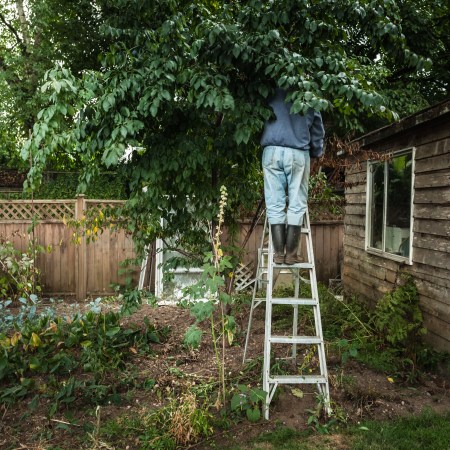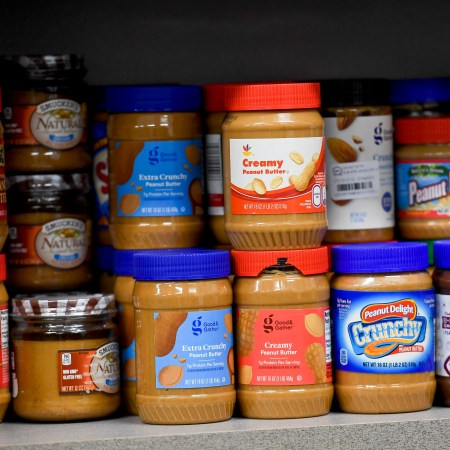Win or lose, I go out drinking with my soccer team on Wednesday nights. We like shitty pubs where the regulars look up in suspicion as the team walks in. There’s fun in earning the bar’s approval by the end of the night. Among my larger ecosystem of friends, these outings are now infamous enough that non-soccer players like to make cameos from time to time.
The other day, one of my teammates told me that his friend is “really interested” in drinking with us on an upcoming Wednesday night: February 2nd. The friend has been doing Dry January, it was explained to me, so he’ll be ready to get after it. He said the timing was perfect.
Dry January has rather humble roots, starting as a public health campaign for an English charity in 2013. But in the near-decade since, it’s become a global phenomenon: last January, one in seven Americans participated in the movement. This year, it’s one in five. Leading the charge? Millennials. An unprecedented 27% reported they would be participating in the trend this year. The movement has also staying power (with a 77% year-over-year retention rate) and yields itself to groups. More adults are reporting making the pledge together, much the same way that friends might register for a marathon, in order to hold each other accountable throughout the month.
There are obvious positives to all of this. Taking a break from alochol can work wonders for your energy, your performance, your sleep. I did it last year. But as Dry January continues to grow, some have expressed concerns over the month’s “viral challenge” tenor — instead of a sustainable solution intended to interrogate one’s relationship to alcohol, it’s become more a gimmicky pat on the back, a personal permission slip to drink even more once it’s over. You know, with the rowdy soccer team.
So which is it? Is Dry January a biometric reset? A branding opportunity? Or just an excuse to binge more throughout the rest of the year? Does the month actually work?

According to Mark Holmes, a registered cognitive behavioral therapist at the Addiction Help Agency in London, that comes down to deciding what “work” even means. “You have to define the success criteria, which may be different for each individual,” he says. “If the objective of Dry January is simply to take a break from drinking alcohol, then anyone who doesn’t drink during this period has achieved their goal. Therefore it’s ‘worked’ … [But] if your goal for Dry January is to quit drinking permanently, which I doubt it is for anybody, then there is no conclusive evidence that this works.”
Citing research conducted by neuropharmacology professor Dr. David Nutt, Mark points out that just two weeks of abstinence can stem the tide of fatty liver disease. Meanwhile, after four weeks without a drink, blood pressure drops, which has a positive impact on heart rate.
It all sounds lovely. But what if you “slip” during the month and have a couple drinks? As Sheila Vakharia, a researcher at the Drug Policy Alliance, pointed out to Popular Science, Dry January is an example of a self-imposed “all-or-nothing” experiment. When things don’t go well, “They can set us up for feeling worse about ourselves rather than delivering the results we want.”
Consider some other all-or-nothing experiments in your life. Like a strict diet, or a pledge to go to the gym every single day. Sometimes, when we fail to deliver on whatever agreement we made with ourselves, we let the wheels fall off entirely. In dietary research, this is known as the “what-the-hell effect.” You’ve “cheated” and had a bag of chips as a snack after a healthy lunch. Oh well. Might as well order a pizza for dinner.
Some who participate in Dry January appear to get preoccupied with the terms of the challenge, as opposed to the role of alcohol in their lives. The fact that the challenge takes place in January matters. It’s a long, chilly month, and one that’s felt increasingly lonely in COVID times, as surges are more likely to happen around this time of year. But quarantine-era or not, they lock themselves away in a tower, counting down the days. They tell their friends they’ll see them in February and they better be ready for a bender.
It should be said: this was not the conceit of Dry January when Alcohol Change UK first pitched it in 2013. It seems fair to say, though, as with any word-of-mouth movement, that it wouldn’t now be so popular now without the perception that one could earn a figurative badge of honor at the finish line. Approached from this angle, Dry January isn’t necessarily unhealthy — it’s more of a wasted opportunity. How often do we take a month to take a step back from something so socially and habitually ingrained in our lives? The point isn’t being the best at discipline. It’s in relearning why alcohol was ever in your life in the first place.
Gillian Tietz, the host of a podcast on addiction science called Sober Powered, pushes back against comparisons between restrictive dieting and short-term abstinence. “Food is something that we have to consume as humans, but alcohol is not,” she points out. “We don’t need to find sustainable ways to keep alcohol in our lives.” This is especially true, she says, for people who struggle to find any sort of moderation in their alcohol consumption. If that’s the case, total sobriety is the correct choice.
But assuming you can moderate your drinking, “A dry month will only benefit you.” Tietz cites a 2016 study which concluded that a participation in abstinence challenges such as Dry January is unlikely to result in undesirable “rebound effects.” What it does result in, according to the research, is better sleep, concentration and overall well-being. A six-month follow-up questionnaire found a reduction in alcohol intake, once the subjects were ready to go back to drinking.
Tietz also references a 2020 study, which hinged on the fascinating topic of “drink refusal self-efficacy,” or, one’s belief that he or she can say no to a drink. After a month of Dry January, or any dry month for that matter, that scale shifts. Upon completion, participants are more convinced than ever before that they don’t need to drink alcohol. Members of the general population who don’t participate in Dry January have not exhibited any similar shifts over time.
Tietz says: “We learn to rely on alcohol to help us socialize, wind down, celebrate. and participating in a dry month will help you learn to do these normal, everyday things without the crutch of alcohol. A big part of being successful with not drinking or drinking less is believing that you can still have fun, relax, feel happy or connect with others without alcohol. A dry month helps people gain skills that will help them for the rest of the year. Once you learn that you don’t need alcohol, you can never forget that knowledge.”
Another interesting takeaway from that second study? “Dry January appears to attract people who are heavier drinkers than the general population.” This suggests that many really do head into the month with the right intentions. They’re looking to explore how they got to that point, and what they might be able to do about it throughout the year ahead. But the challenge isn’t necessarily in avoiding beer and liquor at all costs — it’s in keeping this mindset all month.
And, maybe, keeping it going for two to three months. Proponents of “mindful drinking” urge those exploring moderation to go a little further. That’s to say: push the experiment out to 100 days, and take some of the all-or-nothing pressure off along the way. That could mean setting limits on how many drinks you have while out with friends; imposing a time limit on how late you drink at night; asking yourself whether you’re only at an event to drink alcohol; prioritizing the “taste” alcohol provides instead of the “feel” it gives you; or replacing a traditional drinking night with a different social activity, like a new class.
There’s a chance some of that sounds … impossible. But there’s value in recognizing that. Tietz says: “For anyone who binge drinks on February 1st, well, that’s really important information to know too. If Dry January feels so restrictive for you that you binge drink the second you can, then this tells you a lot about your drinking, your ability to naturally moderate. Maybe trying to find a way to keep alcohol in your life isn’t the best solution for you.”
One of the most wholesome examples I’ve found thus far of a Dry January that focuses on moderation instead of extremes, also happens to involve soccer and pubs. A British reporter tweeted: “My grandad doing Dry January except on Sundays when he goes to the pub is the most North East thing I’ve ever heard.” Her grandpa prefers to watch the Newcastle FC match with a pint, it would appear.
Remember: these things take time. Sometimes more than one January. Or more than one “Moderation March,” which is a new trend people are pushing online now, because alliteration. Look forward to the health benefits, but also look forward to a better understanding of why you are the way you are, several nights a week. In the long run, that’s far more valuable than a pat on the back at the beginning of the year.
This article was featured in the InsideHook newsletter. Sign up now.






















